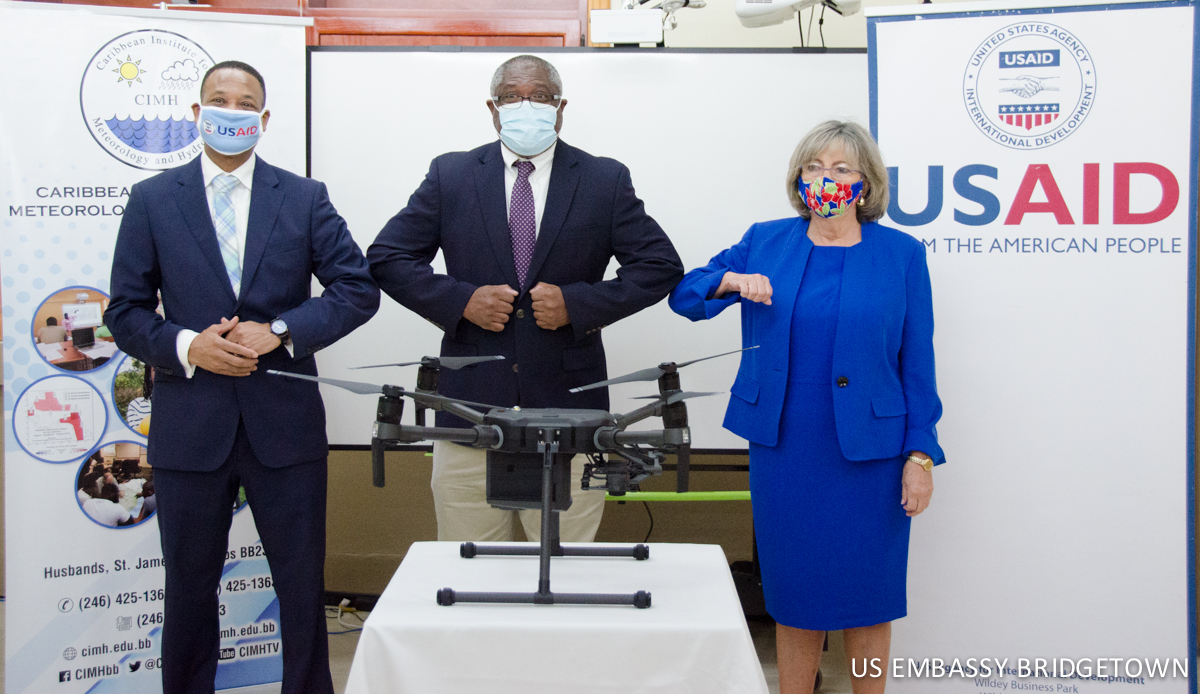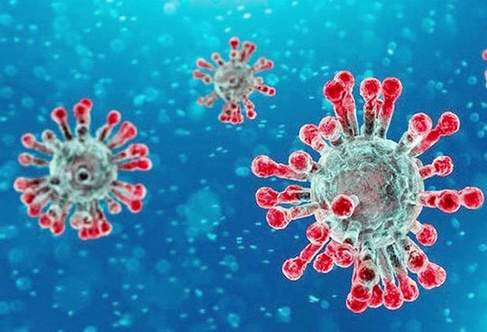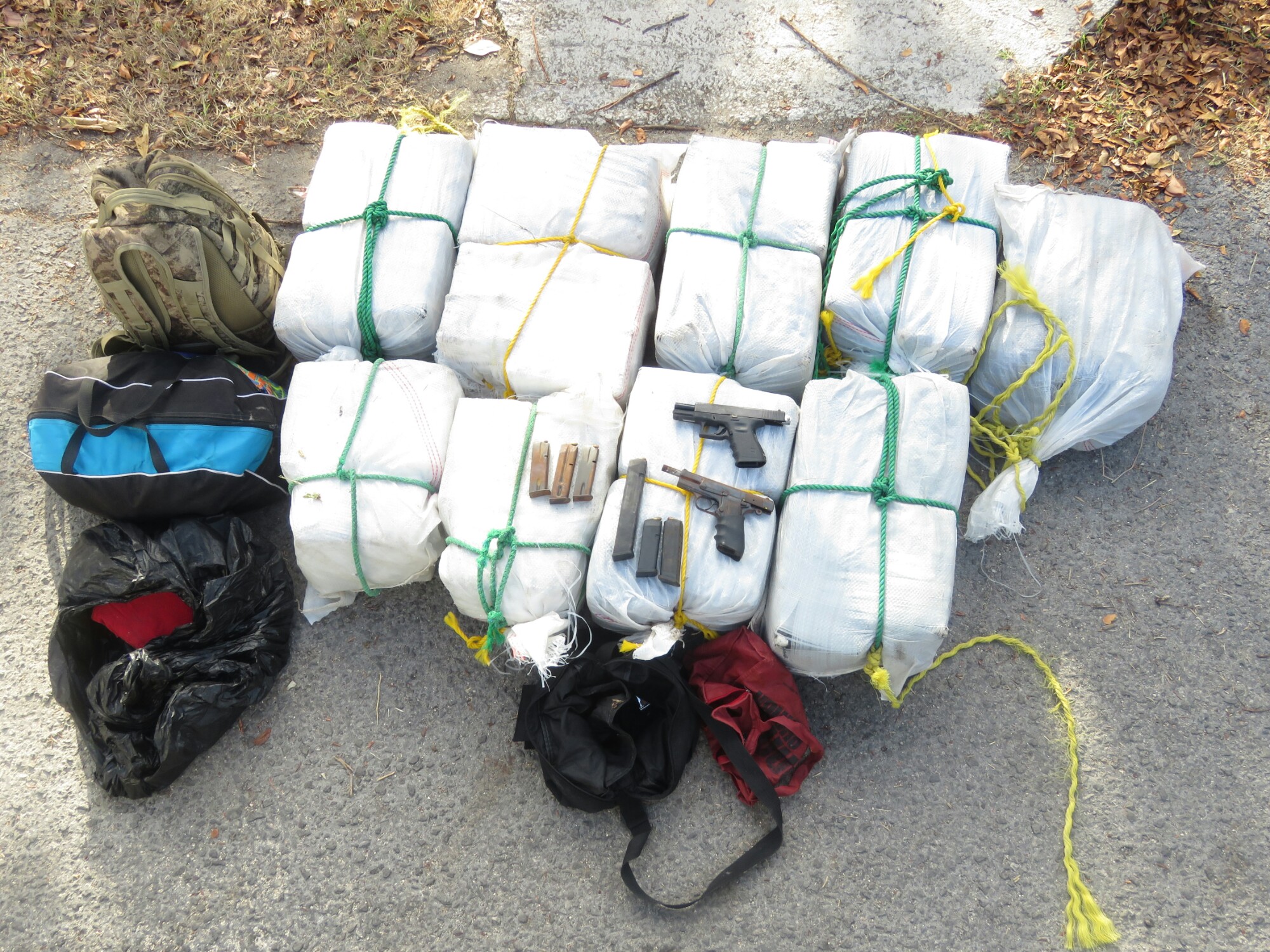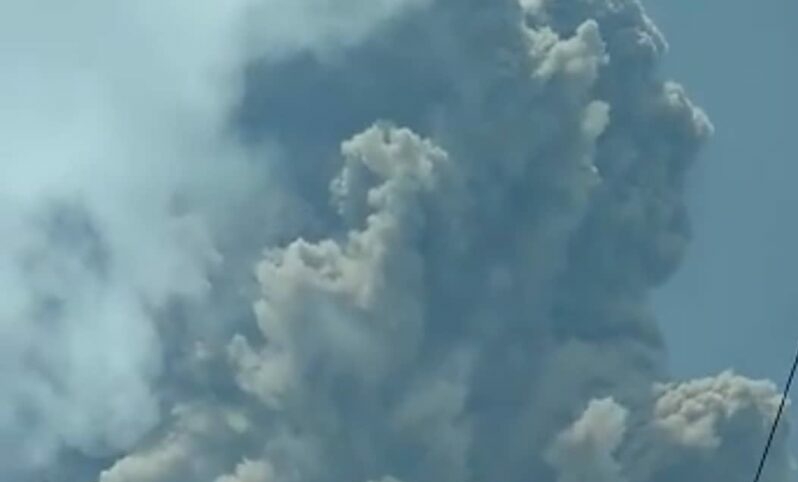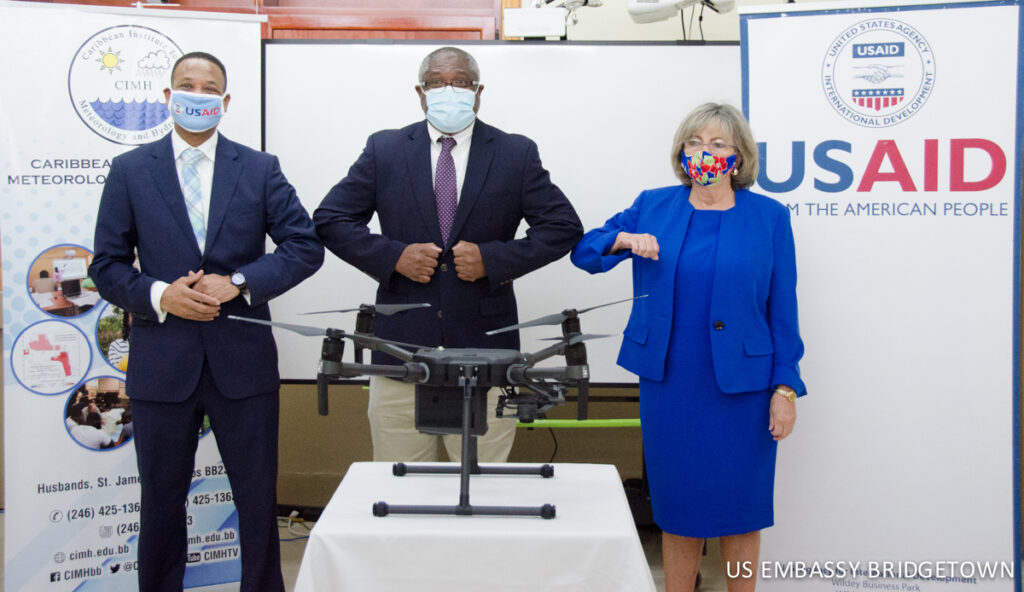
On March 17, 2021 the United States, through the United States Agency for International Development (USAID), provided five drones to the Caribbean Institute of Meteorology and Hydrology (CIMH) to strengthen the region’s capability to predict and respond to climate variability and natural disasters. The CIMH will allocate the drones, worth US$130,000, for use as needed in Antigua and Barbuda, Barbados, Dominica, Grenada, St. Kitts and Nevis, Saint Lucia, and St. Vincent and the Grenadines. Presently, the CIMH has allocated use of one of the drones by the Caribbean Disaster Emergency Management Agency (CDEMA) and another by Dominica. One of the drones has already been deployed to support the region’s disaster response to the recent La Soufrière volcanic activity in St. Vincent and the Grenadines. The drone there provided invaluable information to disaster management authorities to include impacts on the atmosphere.
During a ceremony today at the CIMH headquarters in St. James, the CIMH’s Principal, Dr. David Farrell expressed appreciation of the United States’ continued support to disaster and climate resilience in the region. Speaking with Dr. Farrell, U.S. Ambassador Linda Taglialatela stated, “I want to congratulate you on the continued partnership with CDEMA and various organizations in the region. It ensures that limited resources, such as the drones, are shared and placed at the disposal of countries in critical times of need. This approach complements our support to CDEMA where we are strengthening their operational response systems as part of our focus to build resilience in the Eastern Caribbean.” She continued, “The strong relationships that you have built with entities such as the National Oceanic and Atmospheric Administration, the National Weather Center in Florida, as well as multiple Universities in the United States support the quality and relevance of your work. This work mutually benefits our citizens and economies through forecasting of weather patterns and climate related events, and that ultimately makes the region safer for all.”
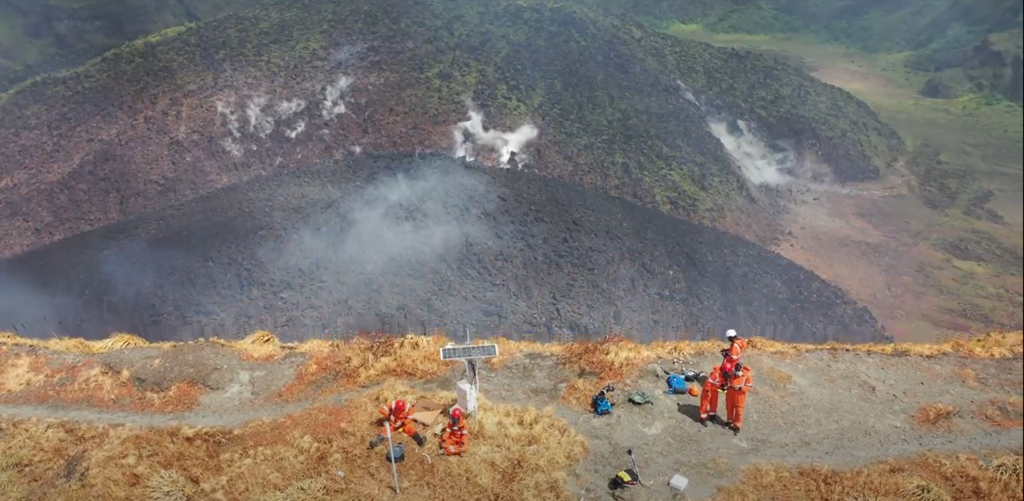
Regional Representative, USAID Eastern and Southern Caribbean, Clinton White stated, “The American people and USAID are also there in the Caribbean’s time of need. We are helping the region respond to emergencies, including hurricanes, fight COVID-19 and build resilience to climate variability and natural disasters. The United States and the Caribbean are a community with many shared values and interests- what affects one inevitably affects all of us. Together, we can strengthen resilience to disasters, make communities more vibrant and expand economic opportunities in the Caribbean. We are neighbors, partners, and friends.”
The drones are part of the US$1,800,000 “Strengthening Disaster and Climate Resilience Program” (SDCR) by USAID in partnership with the CIMH . Through this program, the United States is working with CIMH to build regional resilience through improved disaster recovery and response systems and improved hydrological and hydrometeorological early warning systems. The program assists decision makers in the region plan, design, and implement programs to reduce the impacts of natural disasters. The SDCR addresses challenges presented by the increased quantity and intensity of storms and variability in climatic patterns in the region such as flooding, drought, and sea level rise, impacting economies and well-being through impacts on areas such as health, tourism, and agriculture-related infrastructure and livelihoods.
END

